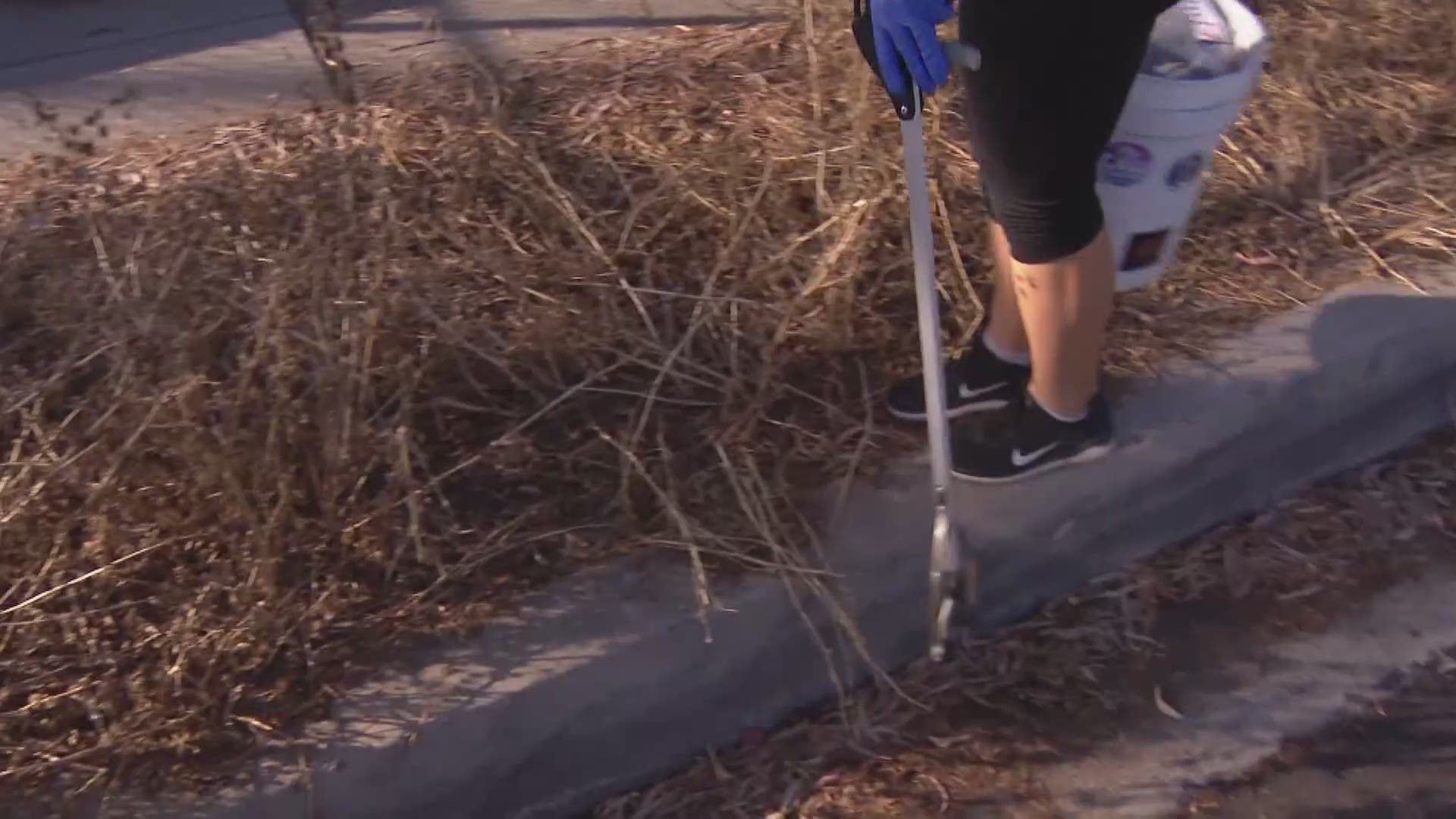SAN DIEGO — Local environmental nonprofit I Love A Clean San Diego has released a set of tips for cooks and eaters to avoid food waste on the food-centric holiday Thursday, which sends millions of pounds of uneaten food to landfills every year.
According to the nonprofit, about 40% of all food produced in the U.S. never gets eaten. Between Thanksgiving and New Year's Day, Americans waste 25% more than during the rest of the year.
Food is the single largest material disposed of in U.S. landfills today, amounting to each person tossing an average of 20 pounds of food per month into the trash at a cost of approximately $1,500 per year, per family.
The environmental nonprofit points out food decomposes anaerobically -- without oxygen -- in landfills and releases methane gas, a driver of global climate change that is up to 86 times more potent in trapping heat than carbon dioxide.
The first tip I Love A Clean San Diego suggests is to cook and serve with a plan. The easiest way to reduce food waste during the holidays is to buy and prepare the right amount of food in the first place. When shopping for ingredients, opt for items in recyclable packaging to further minimize unnecessary waste.
It recommends embracing all foods, including "ugly" produce which might otherwise be destined for the landfill. This wasted produce has the same vitamins and nutrients as their better looking counterparts, but is not chosen simply because of looks.
To reduce the environmental footprint of the meal, Clean San Diego suggests going for plant-based meals. Meat requires almost eight times more water per calorie than most vegetables. Incorporating more plant-based foods into holiday celebrations, such as green bean casserole, lentil shepherd's pie and stuffed peppers, can cut the environmental cost of meals significantly.
Shrinking serving sizes can avoid waste. During the meal, reduce portion waste by using smaller dishes and smaller serving spoons. People can always come back for seconds.
Anticipate leftovers -- having a plan for leftovers is another way to ensure that the food prepared is eaten. Provide containers for guests to take remaining food home, freeze leftovers for a later date or use those leftovers in creative ways.
Donate unused items to regional food pantries. Currently, about one in eight people in San Diego County are food insecure.
Spare your drains and properly manage used cooking oil. Deep fried turkeys have become a popular holiday tradition, but can use up to three gallons of cooking oil. When discarded down drains, oils, fats, and greases can block pipes and cause sewage to overflow into homes, streets, lawns and the ocean, not to mention severely damage home plumbing systems, as well as city- owned pipes.
There are free drop off locations for used cooking oil. Collect cooled cooking oils in a secure lidded container labeled "used cooking oil." Do not mix chemicals or other liquids with the cooking oil. To find the closest drop off location, visit the Recycling and Household Hazardous Waste database, WasteFreeSD.org.
I Love A Clean San Diego offers tips to prevent waste on Thanksgiving
Between Thanksgiving and New Year's Day, Americans waste 25% more than during the rest of the year.


